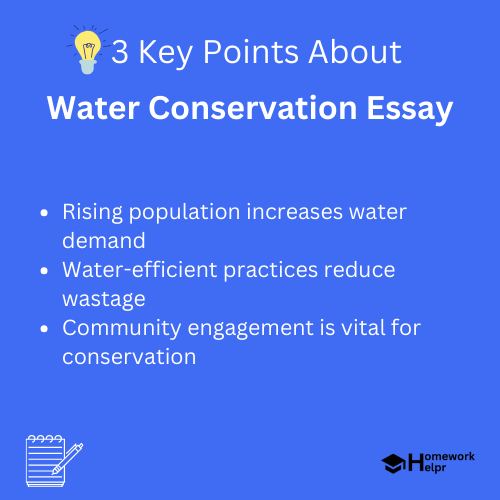📝 Summary
Water is a precious resource vital for life, yet its conservation is critical due to limited availability for human use. As populations grow and climates change, water conservation becomes essential to address drought, maintain ecosystems, and ensure health through access to clean water. Effective methods for conservation include fixing leaks, using efficient appliances, and employing sustainable agricultural practices. Education and policies promoting awareness and incentives are crucial for community participation. By adopting simple measures, we can protect this vital resource for future generations.
Water Conservation: Our Responsibility for the Future
Water is a precious resource that plays a vital role in sustaining life on our planet. Despite its abundance, only a small fraction of Earth‚’ water is available for human use. With the rising population and changing climate, the importance of water conservation cannot be overstated. In this article, we will explore various aspects of water conservation, why it is essential, and ways to conserve water in our daily lives.
What is Water Conservation?
Water conservation refers to the practices and strategies aimed at using water more efficiently and reducing water wastage. It encompasses a wide range of activities, from simple household habits to large-scale water management projects. The goal is to ensure that sufficient freshwater resources are available for future generations while protecting ecosystems and maintaining a balance in the hydrological cycle.
Definition
Hydrological cycle: The continuous circulation of water in the environment, involving processes such as evaporation, condensation, and precipitation.
Water conservation is crucial because it can help mitigate the impacts of drought, improve water quality, and reduce the energy needed for water treatment and transportation. Conserving water fosters responsibility and awareness about this vital resource.
Why is Water Conservation Important?
Water conservation is necessary for several reasons, including:
- Scarcity: Many regions worldwide face water scarcity due to over-extraction and climate change.
- Ecological Balance: Maintaining natural habitats depends on adequate water levels.
- Cost-Effectiveness: Reducing water use can save money on water bills and lower energy costs associated with heating water.
- Health: Conserving water ensures access to clean water, which is vital for health and hygiene.
As the demand for water grows, it becomes increasingly important to implement water-conserving measures within our communities and homes. For example, urban areas often face heavy pressure on their water supply due to population density.
Methods of Water Conservation
There are numerous ways to conserve water, both indoors and outdoors. Some effective methods include:
- Indoor Conservation:
- Fix dripping faucets and running toilets.
- Use water-efficient appliances, such as washing machines and dishwashers.
- Take shorter showers or use water-saving showerheads.
- Outdoor Conservation:
- Water your garden during the cooler parts of the day to reduce evaporation.
- Use mulch around plants to retain moisture.
- Collect rainwater in barrels for irrigation.

Implementing these methods helps reduce water consumption significantly. Regular maintenance and simple behavioral changes can make a substantial difference over time.
Water Conservation Techniques in Agriculture
Agriculture is one of the largest consumers of water globally. Implementing conservation techniques in farming can greatly alleviate water stress. Some efficient agricultural practices include:
- Drip Irrigation: This system delivers water directly to the plant roots, minimizing waste.
- Crop Rotation: Alternating crops helps improve soil health and moisture retention.
- Rainwater Harvesting: Capturing and storing rainwater for irrigation reduces dependency on groundwater.
Examples
For instance, a farmer using drip irrigation can significantly reduce water waste compared to traditional sprinkler systems.
Implementing these methods not only conserves water but also enhances productivity, which is essential for food security. By adopting smarter farming techniques, we can strike a balance between agricultural needs and water conservation.
Water Conservation Policies and Awareness
Governments and organizations worldwide are recognizing the need for effective water management policies. These policies can promote sustainable practices and encourage communities to engage in conservation efforts. Some strategies include:
- Education Campaigns: Informing citizens about the importance of water conservation through workshops and media.
- Incentives: Providing subsidies for water-saving appliances or techniques.
- Regulation: Implementing laws to conserve environmental water and protect wetlands and watersheds.
Creating awareness is crucial. Many schools and community organizations run programs to teach young people the importance of water conservation and how they can contribute.
❓Did You Know?
Did you know that using a broom to clean driveways instead of a hose can save up to 80 gallons of water?
Challenges in Water Conservation
Despite the benefits, there are challenges to implementing effective water conservation measures. Some of these include:
- Lack of Awareness: Many people are unaware of the water scarcity issues and the importance of conservation.
- Infrastructural Issues: Aging infrastructure can lead to significant water loss through leaks.
- Climate Change: Altered weather patterns can introduce unpredictability in water supplies.
Definition
Infrastructural Issues: Problems related to the facilities and systems required for the operation of a community or society, such as roads, bridges, and utility services.
Addressing these challenges requires a concerted effort from individuals, communities, and governments to prioritize water conservation initiatives.
Conclusion
Water conservation is not just a practice; it is a responsibility we all share. With increasing population demands and climate change challenges, conserving water is essential for sustainability and ensuring a healthy future for our planet. By adopting simple water-saving measures in our daily lives, supporting agricultural practices that conserve water, and advocating for sustainable water management policies, we can all contribute to a more water-conscious society. Remember, every drop counts!
Related Questions on Water Conservation Essay
What are some indoor conservation methods?
Answer: Fixing leaks and using efficient appliances
Why is water conservation important?
Answer: To prevent scarcity and maintain health
What challenges does water conservation face?
Answer: Lack of awareness and infrastructural issues
How can communities promote water conservation?
Answer: Through education and incentives
